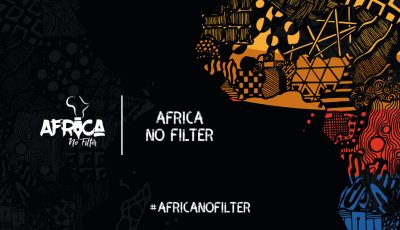African Media Perpetuating Negative Stereotypical Narratives

All Global Research articles can be read in 27 languages by activating the “Translate Website” drop down menu on the top banner of our home page (Desktop version).
***
Africa No Filter is a not-for-profit organization set up to help shift harmful and stereotypical narratives about Africa through research, advocacy and grant-making to storytellers. Interestingly, one-third of all African stories in news outlets on the continent are sourced from foreign news services according to a new report from Africa No Filter.
The ‘How African Media Covers Africa’ highlights the fact that stories about Africa continue to be told through the same persistent and negative stereotypes and frames of poverty, disease, conflict, poor leadership and corruption.
“In response to the persistent and ongoing framing of Africa as a broken continent, dependent on donors with its people lacking agency to make change. We do this through research, grant making and advocacy. Media is an influential platform on which these narratives are carried so we wanted to understand better what role African media had in perpetuating some of the stereotypical narratives,” Moky Makura, Executive Director of Africa No Filter, said in an interview.
The research surveyed 38 African editors, analyzed content from 60 African news outlets in 15 countries (Botswana, South Africa, Zambia, Zimbabwe, DRC, Egypt, Tunisia, Tanzania, Ethiopia, Kenya, Rwanda, Uganda, Ghana, Nigeria and Senegal) between September and October 2020. In addition, four facilitated focus groups were held with 25 editors of African media, editors of Pan African outlets and international correspondents.
The results confirmed challenges and experiences that are common knowledge within the industry: advertising revenue and newsrooms are shrinking, influencing the kind of news that Africans read and that news is largely negative and conflict filled.
Key findings from the report show that the sources for news gathering on African countries are problematic, the resulting content continues to feed old stereotypes, and often the quality of local journalism doesn’t allow for nuanced and contextualized storytelling that is critical for telling stories about the 54 countries in Africa.
- 63% of outlets surveyed don’t have correspondents in other countries in Africa
- 1/3 of all coverage on Africa was from non-African sources, with AFP and BBC accounting for ¼ of all stories found in African outlets about other African countries. African news agencies contributed minimally.
- 81% of the stories analyzed were classified as “hard news” e.g. conflicts and crises driven by events – they were also largely political in nature.
- 13% of the news focused specifically on political violence, civil unrest and armed conflicts.
- South Africa, followed by Egypt were the countries with the most diverse coverage that was not necessarily linked to newsy events meaning that those two countries are probably the ‘best known’ on the continent.
“Media is incredibly influential in setting the agenda and determining narratives about Africa. The research clearly shows that despite years of independence, Africans still don’t hold the pen when it comes to writing our stories. More importantly, we continue to promote the narratives about Africa being broken, dependent and lacking agency through the stories we share in our media about each other. We need to take back the pen,” Makura said.
According to her, the media is constrained by its business model so this is not so much about leadership and management. Advertising is the key revenue driver and that essentially pays for and influences what is written about in the media. But media leaders in Africa need to think up new models and reinvent themselves to maintain their relevance in a market where direct channels exist and where their very existence is threatened.
“We need investment in media. We need better trained journalists and storyteller, investment in infrastructure and resources to be able to cover soft and hard news, fact check and keep up with the digital pace,” she explained, adding that it is necessary to make grants to support projects, and for capacity building of media.
Africa No Filter is on a mission to make some impact into how the continent is perceived by Africans and the rest of the world. It is funded by the Ford Foundation, Bloomberg, Andrew W. Mellon Foundation, Luminate, Open Society Foundation, Comic Relief, the Hilton Foundation and the British Council.
*
Note to readers: please click the share buttons above or below. Forward this article to your email lists. Crosspost on your blog site, internet forums. etc.
Kester Kenn Klomegah, who worked previously with Inter Press Service (IPS), is now a frequent and passionate contributor to Global Research.
Featured image is from the author

